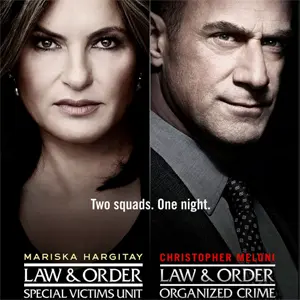Law & Order franchise is sacrificing realism to preserve optimistic attitudes toward policing
-

In the aftermath of George Floyd anti-police brutality protests of summer 2020, Law & Order: Special Victims Unit and its spinoff Law & Order Organized Crime show how the long-running Law & Order franchise is experiencing an identity crisis in portraying the police, says Pete Tosiello. "The franchise once focused on good work done by flawed people, but now even SVU takes a more evangelistic stance," says Tosiello. "Police departments may abuse their power, it concedes, but they are redeemed by the likes of Olivia Benson. What’s jarring about the way Organized Crime and SVU have diverged is how thoroughly both shows sacrifice realism to preserve optimistic attitudes toward policing. The original Law & Order, which aired from 1990 to 2010 (a revival begins this month), took pains to establish its characters as public servants, not superheroes." But nowadays, says Tosiello, "Organized Crime and SVU face a new hurdle: They must demonstrate that cops are indeed the good guys. Both have cagily staked their territory. SVU pays lip service to reform without seriously considering it; Organized Crime looks the other way entirely, supposing a wasteland of a city overrun by militant thugs. Stabler is an avenger, Benson a heart-of-gold administrator who could maybe be talked into some additional sensitivity training." As Tosiello points out, Dick Wolf has always maintained that his franchise is nonpolitical. "But the incoherence of the new installments is a statement in itself," says Tosiello. "The shows could not ignore that millions of Americans were so shaken by police violence that they took to the streets in 2020. But it’s also true that some share of Law & Order fans must have thin-blue-line flags draped from their porches. Two roads diverged in a wood, and Law & Order pretends to take them both."
TOPICS: Law & Order: Organized Crime, NBC, Law & Order, Law & Order: Special Victims Unit, Dick Wolf, Law & Order Franchise
More Law & Order: Organized Crime on Primetimer:- TV Today: Norman Lear Celebrates 100 Years of Music & Laughter, Law & Order Crosses Over
- Law & Order: Organized Crime Crew Member Killed While Filming On Location in New York
- Law and Order's Christopher Meloni Goes Nude in Cheeky Peloton Ad
- Law & Order Set to Make History With Potential Three-Show Crossover Event
